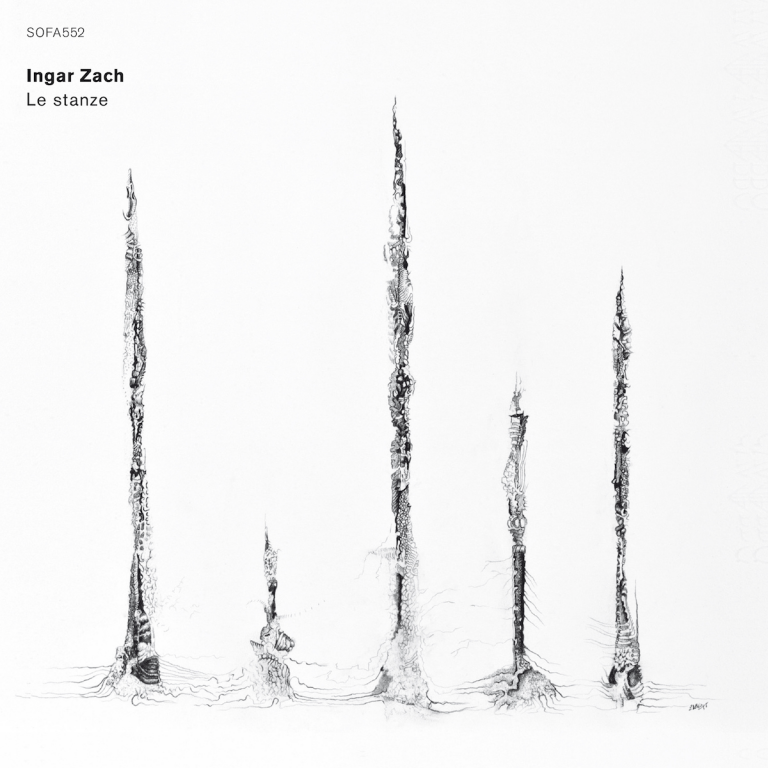It’s been 6 years since Ingar Zach’s last solo album, M.O.S., but he doesn’t over-stuff Le Stanze. It is, if anything, even more admirably focused than Bloom.
Zach recorded “in a small church in Urueña in Spain and in (SOFA) studio in Madrid”, with a minimal palette of percussion and electronics, and by contrast to Myhr’s meticulous dubwork, the results are strikingly textural and concrete.
The album’s pleasurably austere tone is set early, by the dramatically ritualised, gesture-studded near silence of lead cut “La Bugia Dello Specchio”, which effectively serves as a long intro to the albums longest (15:19), and initially most direct piece, “Il Battito Del Vichingo.”
This track’s regular subcutaneous pulse and surface ripple of temple bells, all undercut by electronic drones, come under a fast, brittle rain of pointillist stick-hits. Later, a passage of airy electronic drift and twinkling slithers of percussive highlight bridges to a lengthy near-silence studded by sporadic whip gestures, echoic wood-and-skin percusssives, and small metallic chimes.
Next up, “L’Inno Dell’ Oscurità” is rich in overtones scraped up from bowed frame drums or skin rubs, producing, with carefully modulated stringency a protracted, low rubato humming, and “È Solitudine” is a variation of sorts but primarily electronic, small motor-ic, hazed by snare vibrations. It’s a tonally paradoxical piece of abrasive luminosity, and a lovely way to close.
Both albums are exquisitely crafted and emphatically musical, with any trace of indulgence trimmed away. Myhr’s production is expansive, Zach’s more close-textured; what they have in common is a delicacy in the use of electro-acoustic processing to expand the expressive potential of their primary instruments. The results, belying any complexity of process, are ravishing.

